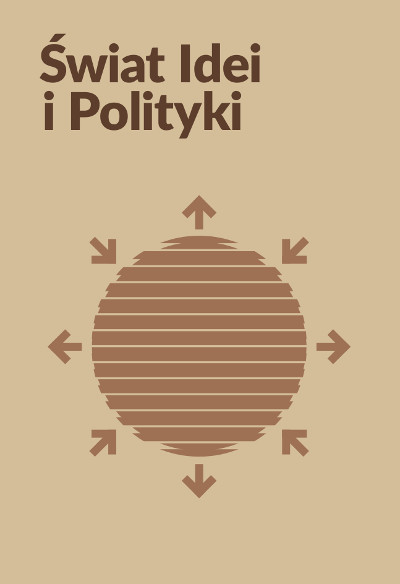Beyond oral history: The application of semi-structured interviews to research in the overlapping fields of history, sociology, and political science
DOI:
https://doi.org/10.34767/SIIP.2024.02.06Keywords:
oral history, semi-structured interview, ethics, social sciences, interdisciplinary researchAbstract
Semi-structured interviews are widely used in the social sciences and, though less common, have also found a place in the humanities, particularly in oral history methodology. At the intersection of disciplines, this technique serves not only to uncover new historical facts and deepen existing knowledge but also to offer insights into subjective interpretations. This approach is particularly valuable in studies involving communities and collectivities whose perceptions of facts or “truth” may differ from the mainstream narrative – such as populations on opposing sides of active or past conflicts. These differing perspectives can shape political narratives, often making the “objective” truth less relevant to those directly involved. Researchers, in turn, access only a fragment of history, as told through the participants’ knowledge and memories. This text examines contexts in which semi-structured interviews may prove useful for research, drawing from current and representative literature, as well as the author’s own journalistic and professional experience. It also addresses important ethical considerations in interview-based research, such as the security of interviewee data, researcher biases, the risk of invoking psychological trauma, and the need for informed consent. By citing examples of studies that have successfully employed this method, this article provides a methodological framework that can guide researchers in applying this technique to social science research with a historical focus. Ultimately, the article advocates for the broader use of semi-structured interviews in research, emphasizing that the technique can provide valuable insights and should not be dismissed as unsuitable for the humanities.
References
Babbie, E. (2003). Badania społeczne w praktyce. Warszawa: Wydawnictwo Naukowe PWN.
Bartosiak, J. (2023). Najlepsze miejsce na świecie: gdzie Wschód zderza się z Zachodem. Warszawa: Wydawnictwo Literackie.
Divino, C. (2023). Theoretical reflections on the use of oral history as a research methodology. In: Connecting Expertise. Multidisciplinary Development for the Future. São José: Seven Publicacoes. DOI: https://doi.org.10.56238/Connexpemultidisdevolpfut-050
Filipkowski, P. (2018). Historia mówiona jako hermeneutyka losu. Doświadczenie przedtekstowe, Teksty Drugie, 1. DOI: https://doi.org.10.18318/td.2018.1.3
Fontana, A. & Frey, J.H. (2014). Wywiad. Od neutralności do politycznego zaangażowania. In: N.K. Denzin & Y.S. Lincoln (eds.), Metody badań jakościowych. Warszawa: Wydawnictwo Naukowe PWN.
Greenspan, H. (2019). The humanities of contingency: interviewing and teaching beyond “Testimony” with Holocaust survivors. The Oral History Review, 46(2), 360–379. DOI: https://doi.org.10.1093/ohr/ohz008
Greenspan, H. (2014). The unsaid, the incommunicable, the unbearable, and the irretrievable. The Oral History Review, 41(2), 229–243. DOI: https://doi.org.10.1093/ohr/ohu033
Hudoshnyk, O. (2023). Oral history and media: platforms for collecting wit ness stories. Synopsis Text Context Media, 29(2), 139–145. DOI: https://doi.org.10.28925/2311-259x.2023.2.11
Kierzkowski, M. (2017). Historia mówiona – próba pojęcia definicji. Wrocławski Rocznik Historii Mówionej, 4. DOI: https://doi.org.10.26774/wrhm.64
Kopiniak, M. (2021). Historia mówiona jako narzędzie partycypacji muzealnej. Wrocławski Rocznik Historii Mówionej, 11. DOI: https://doi.org.10.26774/wrhm.296
Krawczyk, A. (2023). Doświadczenie międzykulturowości. Na podstawie narracji młodych osób dorosłych pochodzenia żydowskiego. Łódź: Wydawnictwo Uniwersytetu Łódzkiego.
Ogunlana, S.O. (2019). Halting Boko Haram / Islamic State’s West Africa Province Propaganda in cyberspace with cybersecurity technologies. Journal of Strategic Security, 12(1), 72–106. DOI: https://doi.org/10.5038/1944-0472.12.1.1707
Peled, K. (2014). Palestinian oral history as a source for understanding the past: insights and lessons from an oral history project among Palestinians in Israel. Middle Eastern Studies, 50(3). DOI: https://doi.org.10.1080/00263206.2013.871705
Song, J. (2019). “She needs to be shy!”: Gender, culture, and nonparticipation among Saudi Arabian female students. TESOL Quarterly, 53(2), 405–429. DOI: https://doi.org.10.1002/tesq.488
von der Warth, R., Metzner, G., Körner, M. & Farin, E. (2023). Exploring communication preferences of trans and gender diverse individuals-A qualitative study. PLoS ONE. DOI: https://doi.org.10.1371/journal.pone.0284959
Vrzgulova, M. (2019). The oral history interview – a relationship and space of frust. Slovenský národopis/Slovak Ethnology, 67, 430–440. DOI: https://doi.org.10.2478/se-2019-0025


